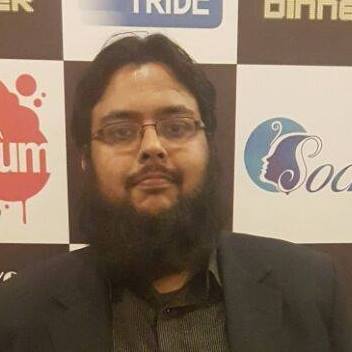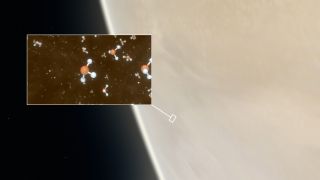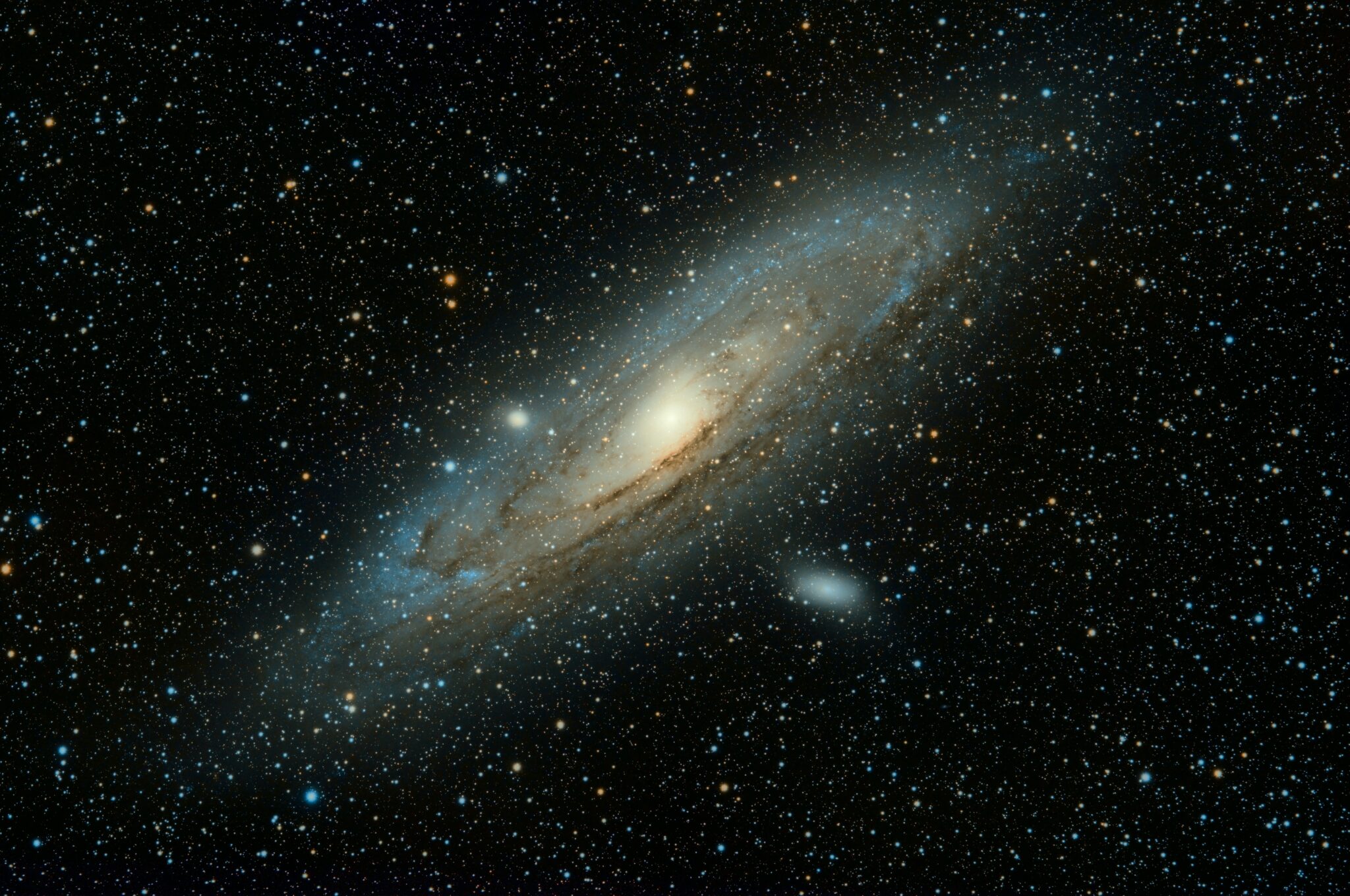Faisal Ur Rahman is an Astrophysicist and Data Scientist, interested in learning and testing theories related to the evolution and expansion of our universe. He mostly employs modern tools like data sciences, data visualization, machine learning, and statistics to seek answers related to cosmology, dark energy, and things on the big scale. Academically, he is in the last year of his Ph.D. candidateship at the Institute of Space Sciences & Technology – at the University of Karachi. He is working as a Senior Researcher & Instructor at the Karachi Institute of Technology and Entrepreneurship (KITE) and has been teaching as a visiting faculty member at different higher education institutions in Karachi.
He has worked in the academia & IT industry for more than 14 years. He also works with one of the largest surveys of radio astronomy – EMU or Evolutionary Map of the Universe, with more than 300 scientists from 30 different countries. The EMU project is expected to detect millions of radio sources using the ASKAP telescope based in the MidWest region of Western Australia. Faisal Ur Rahman works from Pakistan as a collaborator.
We ardently had the privilege to get the story of his journey and his view of the Solar System and the Universe. We started the conversation with his background that led him to pursue his career as a professional astronomer.

Fouz: How did you get interested in Astronomy and Cosmology? As these are not very popular career choices in Pakistan.
Faisal Ur Rahman: I have always liked science-fictional shows, so that sparked some basic level of interest for me to explore the field as a professional. However, I seriously started to consider Astrophysics & Cosmology, as the area which I can pursue in research, during my Australian National University days while completing my master’s degree. I later got the opportunity as an HSN researcher which helped me in joining EMU Radio Astronomy collaboration and CAASTRO. I have also joined the WALLABY-ASKAP collaboration which is another major Radio Astronomy collaboration. These opportunities exposed me to a lot of interesting work. My undergrad degree is in Telecommunication Engineering & my industry experience was (and still is) mostly related to software and business intelligence (BI) development. A good thing about Astronomy is that a lot of this industry experience became relevant & useful in my Astronomy research and also Astronomy research helped in developing more skills (especially in data sciences) that are relevant to the industry.
Fouz: Well, hearing your introduction was very surprising. It’s interesting how you employed your engineering and programming background in Data-Driven Astronomy. Well, coming to our main topic of the Solar System, we would like to get your vantage point as a researcher, what scientific questions should we seek within our solar system, for instance?
Faisal Ur Rahman: Although my focus is mainly on studying cosmology and the evolution of our universe at very large scales, I think we have a lot to learn about our immediate neighborhood and our own solar system too. For me, a major area where we can work is to expand human civilization beyond Earth. Studying the possibility of life beyond Earth can potentially lead to a new evolutionary phase for humanity. Some countries are working on it which is also helping them in advancing their science & technological developmental capacity in many other areas too and I hope someday Pakistan will play its part in such endeavors too. Pursuing such projects will not only help in advancing some interesting science goals but the process of pursuing these science goals will help in developing our industrial capacity, technical human resources, and overall sci-tech R & D capacity which can play an important part in our socio-economic development and the advancement of our civilization.
Fouz: What do you think we currently know about our solar system? Do you think that there can be other identical solar systems in the universe like ours?
Faisal Ur Rahman: Humanity has been studying our solar system for a long time. We know about the planets, moons, our stars (sun), asteroids, and many other objects in our solar system. However, there are many things that we still don’t know about and I think we still have a lot of work to do and solve a lot of interesting problems. This is how humanity evolves: we face challenges and unsolved problems, we look for the answers, we learn new things, we build new things, we find some answers and then we look for new interesting problems. As of now, NASA’s Transiting Exoplanet Survey Satellite (TESS) has identified 5000+ detections of potential exoplanets, revolving around different stars, and there are other teams working on exploring new exoplanets too.

There are various teams that are working on exploring the atmospheres of exoplanets. This suggests there is a great interest in the astronomy community and general public too about finding planets outside of our solar system and the possibility of life on other planets.
Fouz: Recently, the much-talked-about JWST was launched in an effort to search for our origin. Will we be studying/observing our own solar system?
Faisal Ur Rahman: JWST is aimed at observing our universe at infrared wavelengths. Apart from studying galaxy formation, star formation, exoplanets, and other goals which require observing the objects beyond our solar system, JWST will also help astronomers in learning more about our own solar system too like studying the atmosphere of Mars or Saturn, observing asteroids, observing Kuiper Belt objects, etc. This is one of the most exciting times for humanity, as emerging technologies are helping us in exploring new frontiers in space research which are helping us in improving our understanding of the universe.
Fouz: What do you think about the recent controversy of having the Phosphine found in Venus? Is there any possibility that we may have any microbial life on our neighboring planets?
Faisal Ur Rahman: Detection of Phosphine on Venus could have indicated the occurrence of some biological processes in the atmosphere of Venus and the mere possibility of it created a lot of interest in people especially the way the media reported it. However, further analysis by other teams suggested no evidence of the trace gas phosphine in the atmosphere of Venus. This is how science works. We look for evidence, we recheck that evidence and we publish results to open our findings for peer review.
No, evidence with current data doesn’t negate the possibility of finding such traces in future studies.

Fouz: We live in times where we think that we can be interplanetary species. Do you think it is possible for humans to live on Mars?
Faisal Ur Rahman: If we are able to develop and apply the right technologies then maybe in a few decades humans will start living on Mars, various space agencies and startups are working on it and it’s entirely possible. With the current level of advancement in science, it is possible for humanity to become an interplanetary species but it will require resources, feasible engineering solutions, and commitment to make it a reality.
Fouz: As you have been researching Astrophysics and Cosmology for quite a long time, what do you think is the most interesting fact we know about the universe?
Faisal Ur Rahman: For me, the really interesting things are actually the ones which we don’t know much about like what is the nature of things that make up 95-96% of our universe (Dark Energy and Dark Matter). Why is there an unexpectedly large cold spot in CMB maps? Why are we getting different values for the Hubble Constant from different signatures? So, these questions keep me curious and provoke my thoughts.
Fouz: Do you think that we have a promising future in Astronomy or Space Sciences as a career in Pakistan for young people?
Faisal Ur Rahman: In Pakistan, unfortunately, we don’t have any serious Astronomy research programs and we don’t even have any professional quality telescopes in the country. So purely pursuing Astronomy research as a career will be challenging for anyone. However, the skills you will gain and the learning capacity you develop, during your space science education (undergraduate and graduate), can help you in getting jobs in various other areas (Data Science, Physics, Programming, Aerospace, GIS). But this entirely depends on your own circumstances, interests, and efforts. I suggest students keep developing programming and database skills and develop a good background in mathematics and statistics. These technical skills and knowledge base, backed by your interpersonal skills and desire to learn new things, can not only help you in your research in areas related to Astronomy and Space Sciences but can open doors in other areas as well.
Also Read: MARS COLONIZATION: WHAT DECADES OF MISSIONS HAVE REVEALED

Fouz Siddiqui is a writer, academic and scientific management person. Presently, he is a Co-founder and Chief Information Officer at Scientia Magazine. As CIO, he oversees the implementation and strategization of Scientia’s technological and scientific vision. Concurrently, In academia, he holds a Lecturer and QM position at ATH – IST. As an academic, his research interests are Exoplanetary Sciences within Astronomy. Furthermore, he also works with Kainaat Studios, as its Manager of Science Outreach.

